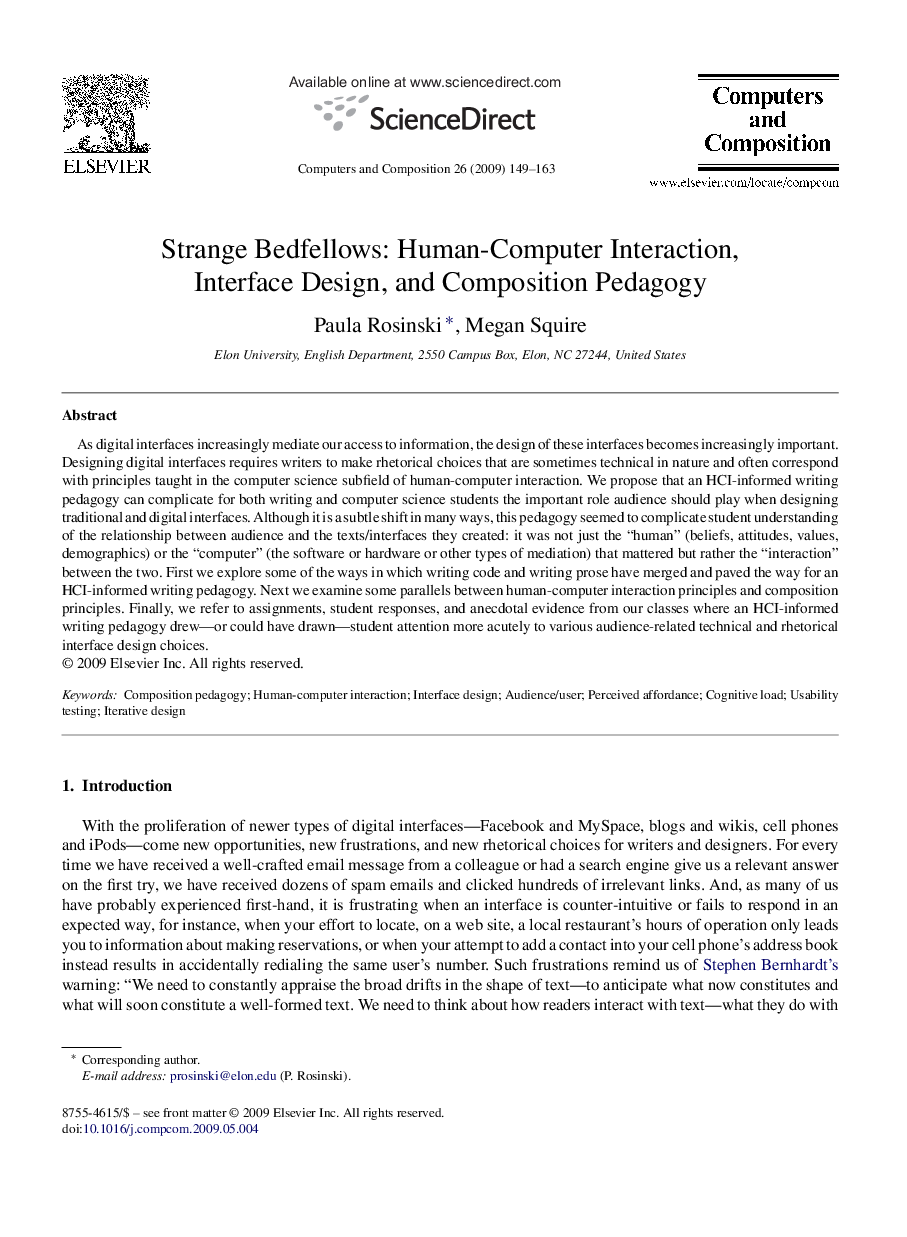| Article ID | Journal | Published Year | Pages | File Type |
|---|---|---|---|---|
| 347931 | Computers and Composition | 2009 | 15 Pages |
As digital interfaces increasingly mediate our access to information, the design of these interfaces becomes increasingly important. Designing digital interfaces requires writers to make rhetorical choices that are sometimes technical in nature and often correspond with principles taught in the computer science subfield of human-computer interaction. We propose that an HCI-informed writing pedagogy can complicate for both writing and computer science students the important role audience should play when designing traditional and digital interfaces. Although it is a subtle shift in many ways, this pedagogy seemed to complicate student understanding of the relationship between audience and the texts/interfaces they created: it was not just the “human” (beliefs, attitudes, values, demographics) or the “computer” (the software or hardware or other types of mediation) that mattered but rather the “interaction” between the two. First we explore some of the ways in which writing code and writing prose have merged and paved the way for an HCI-informed writing pedagogy. Next we examine some parallels between human-computer interaction principles and composition principles. Finally, we refer to assignments, student responses, and anecdotal evidence from our classes where an HCI-informed writing pedagogy drew—or could have drawn—student attention more acutely to various audience-related technical and rhetorical interface design choices.
